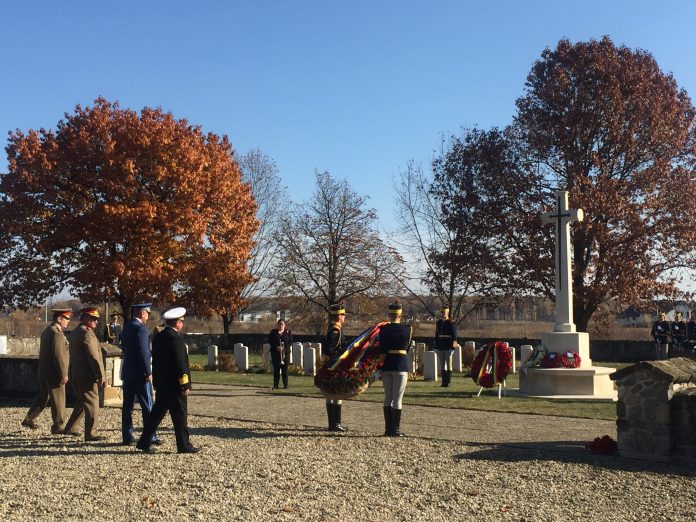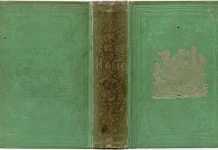Soldiers, ambassadors, diplomats, members of the armed forces and dozens of ordinary people gathered at the Tancabesti Commonwealth War Cemetery Bucharest north of Bucharest to mark 100 years since the end of World War I.
Colonel Sylvain Guibord, the Canadian Defense Attaché in Romania read out the In Flanders Field war poem, the most quoted poem from the war. It was penned by Canadian physician Lieutenant-Colonel John McCrae in 1915 inspired by the death of a friend in the battle of Ypres.
The service was led by British military chaplain Giles L Legood from the Royal Airforce accompanied by a Romanian Orthodox priest.
The U.S., British, Canadian, Russian, Austrian, German ambassadors and others, the Romanian foreign ministry, schools and others laid wreaths of red poppies at the cemetery. The ceremony is held every year on the Sunday closest to Nov. 11, the formal end of World War I.
Ninety servicemen from Britain, Canada and other countries who died during both world wars are buried at the cemetery.
The day honors the armed forces community, British and Commonwealth veterans, and allies who fought alongside the UK and the civilian servicemen and women involved in the two world wars and later conflicts.
Services were held across in Britain Sunday and with a two-minute silence at 11 am.
The first Armistice Day was on 11 November 1919. Hostilities formally ended „at the 11th hour of the 11th day of the 11th month”, in accordance with the armistice signed by representatives of Germany and the Entente.
Nicholas Hammond, a British lawyer who has lived in Bucharest since the early 1990s explained the significance of the day.
“It’s to remember those who died in war, in whatever country,” he said.
The day is informally known as Poppy Day because people pin paper poppies on lapels to commemorate those that died in war.
The references in Flanders Fields to the red poppies grew over the graves of fallen soldiers resulted in the remembrance poppy becoming one of the world’s most recognized memorial symbols for soldiers who have died in conflict.
Here’s the poem:
In Flanders fields the poppies blow
Between the crosses, row on row,
That mark our place; and in the sky
The larks, still bravely singing, fly
Scarce heard amid the guns below.
We are the Dead. Short days ago
We lived, felt dawn, saw sunset glow,
Loved and were loved, and now we lie,
In Flanders fields.
Take up our quarrel with the foe:
To you from failing hands we throw
The torch; be yours to hold it high.
If ye break faith with us who die
We shall not sleep, though poppies grow
In Flanders fields




















